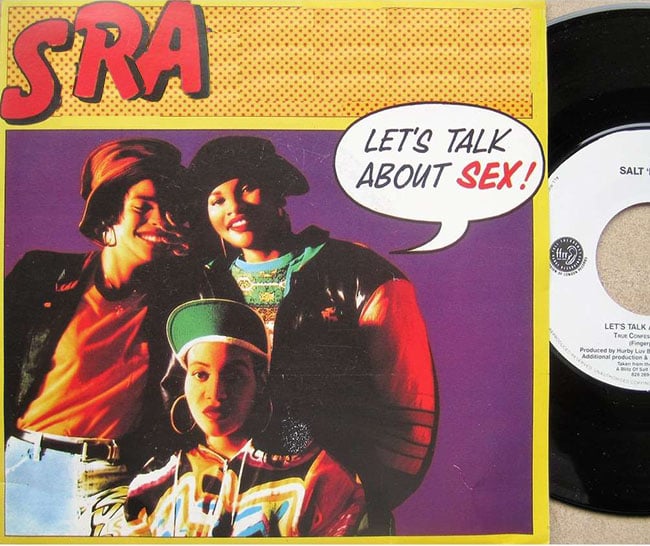
Reluctantly.
The Solicitors Regulation Authority has changed the way it collects information about the sex of people working in law.
The move affects its biennial Diversity Questionnaire and follows the recent High Court ruling which ordered the Office of National Statistics to change its guidance for the 2021 Census.
The SRA said that it had altered its approach "after considering the research undertaken by the Office for National Statistics (ONS) in preparation for the 2021 Census and listening to a range of voices on the matter", adding, "We appreciate there are many strongly held views on these issues".
The legal regulator's explanation omitted to mention that the ONS's "research" included being taken to court by campaigning feminists over its lax approach to recording sex, and losing.
The SRA may also have been influenced by the outcry from lawyers over its last attempt at talking about sex two years ago.
In its 2019 questionnaire, the SRA asked, "Which gender to you identify with?" followed by, "Do you consider your gender identity to be different from your registered sex at birth?"
The formulation of its questions prioritised recording gender identity over biological sex, prompting some lawyers to complain that the SRA was failing to collect effective data on women in the profession, harming its ability to identify and tackle sex-based issues surrounding the hiring, retention, promotion and treatment of female lawyers.
Audrey Ludwig, the director of Suffolk Law Centre, asked, "If you do not keep accurate equality monitoring data how can you analyse trends on issues like pay gap and sex discrimination/incidents of harassment on grounds of sex?"
Caroline Criado Perez, award-winning author of Invisible Women: Exposing Data Bias in a World Designed for Men, said, "I understand why orgs do this, they mean well, but less data is never the answer. Sex AND gender".
The SRA appears to have listened, and its new survey now leads with a straightforward question asking, "What is your sex?", followed by a question to capture gender identity which asks, "Is the gender you identify with the same as your sex registered at birth?"
Unlike the Census, however, the SRA's question on sex comes with a third option. Respondents can give their sex as either "male", "female", or "another preferred description".
"We understand why the ONS uses a binary sex question which requires people to select male or female as per their legal documents", states the SRA's explanatory notes*. "We felt that for us, a more inclusive approach was appropriate, so we have provided a third option for the sex question for those who do not identify as male or female." The SRA declined to provide an example of a third option for sex, stating that "the explanatory notes do what they need to".
Firms regulated by the SRA will be required to provide their data in late summer.
*In fact, the court ruled that the ONS had to change its reference to "legal documents" to the stricter "sex recorded on your birth certificate or Gender Recognition Certificate", but hey, who's counting.














Comments
69
28
I find the SRA's interest in sex rather perverse and disturbing. They should try their hand at regulating the practice of law some time.
31
31
"*In fact, the court ruled that the ONS had to change its reference to "legal documents" to the stricter "sex recorded on your birth certificate or Gender Recognition Certificate", but hey, who's counting."
The court granted an interim injunction requiring the references to passport/driving licence in the explanatory notes to be removed, but the case didn't proceed to final hearing. The above gives the misleading impression that the court ruled "legal" sex is determined only by birth certificate/Gender Recognition Certificate, when it did no such thing.
39
23
09:36 The article doesn't say anything at all about how "legal sex" is defined. It doesn't even use the term '"legal" sex'. It just says the ONS was ordered to change its guidance on recording sex. This is what the ONS itself says, on its website, via the link:
"This article relates to guidance used in the 2021 Census from 22 February to 9 March. From 9 March onwards the guidance line beginning “If you are considering how to answer” was amended to “If you are considering how to answer, use the sex recorded on your birth certificate or Gender Recognition Certificate.” This change was made in response to a court order and is related to the legislative framework of Census 2021."
You are tilting at windmills. I'm not sure why.
71
31
One step forward, two steps back. The SRA are still short-changing women.
To be blunt, there are only two sexes. By offering a third choice based on how respondents 'identify', the SRA whiffs on this issue by turning their sex question into just another 'gender identity' question. Where are the grown-ups? This is no way to track sex-based issues in the profession.
34
38
09:50 - the RoF writeup implicitly ridicules the SRA for going "further" than the ONS in terms of the definition of sex (hence the reference to third sex), and then suggests that the ONS was defeated in court for taking too broad an approach when it comes to the definition of sex, ie the range of legal documents that can be used to evidence/support it.
I'd hardly describe that as "tilting at windmills". If the SRA is asking about sex and also gender identity 1) anyone whose gender identity does not match their sex can be identified and excluded from the data if necessary, and 2) I cannot envisage swathes of people putting the "wrong" sex (whatever that means) on the form. Given RoF's angle on this issue if the concern is about the clash of trans rights and women's rights if anything people self-IDing as female should skew the data in favour of "females"/women, suggesting a greater need for accommodation/recognition of the issues that group faces.
61
31
Gender isn't a thing, it's a social construct based on regressive stereotypes. By collecting data in this way, the SRA is giving credence to a nebulous and made-up idea.
Makes me wonder if the long term plan is to use this route to 'address' the continued under representation of women in the profession.
45
26
10:06: You say the article 'ridicules' the SRA by pointing out that it has gone 'further' that the ONS. That isn't ridicule- the SRA itself says it's decided to be more 'inclusive' (ie go further).
The ONS WAS defeated in court for taking too broad an approach, for its guidance on the sex question. There's no need to 'suggest' that it happened. It did actually happen.
"if anything people self-IDing as female should skew the data in favour of "females"/women"
No, this is the exact point. You need accurate data to help all types of people - trans, women, all of them are poorly served by sloppy data. For example, only females will not be promoted because they might get pregnant. That means that if transwomen put their sex as female, and they occupy senior roles, the SRA will wrongly believe there is less of an issue with biological women being withheld promotions than there actually may be, and allocate fewer resources to tackle it as a result. Accurate data is important - your willingness to chuck that standard away does your position no favours.
43
22
9:50 "the RoF writeup implicitly ridicules the SRA"
Rof usually explicitly ridicules the SRA, so anything less is basically a compliment
41
44
Lol, as if transgender women somehow magically aren't discriminated against as women. What Audrey suggests should happen is exactly what will in fact skew the statistics. Of course, the other fact is this discriminated against minority is so small in numbers it won't make the slightest difference to the statistics, nor harm biological women's rights in any meaningful way.
63
34
I have yet to hear a convincing argument that the concept of gender has a single, even theoretical benefit. The category of sex is sufficient for any and all purposes. Just drop the gender stuff. Let the word and concept die. Nobody will lose anything for it.
39
38
"Gender isn't a thing, it's a social construct based on regressive stereotypes. By collecting data in this way, the SRA is giving credence to a nebulous and made-up idea."
What a ridiculous statement. We record people's identification with all sorts of social constructs - nationhood, race and religion being obvious examples. There's no rational justifcation whatsoever for not including gender amongst these just as there is no rational justification for transphobia or attempts to erase trans identities.
59
38
Warren @ 11.08. Transwomen do not suffer discrimination because they are women. If they suffer discrimination it is because they are transwomen, i.e. men attempting to act out what it is to be female.
29
23
Is the information on "gender identity" voluntary?
Or is it now mandatory to disclose the sexual identity to the regulator and the employer in order to be allowed to practice law in the UK?
31
21
Both questions are voluntary.
41
43
@SNG
Trans women don’t suffer discrimination as women?
Where the feck have you been? Trans women encounter discrimination as women AND as trans women.
And trans women are not men.
Surprised you need this explaining to you.
49
33
@Person: "trans women are not men"
The point is that they are not women.
40
26
"We record people's identification with all sorts of social constructs - nationhood, race and religion being obvious examples."
I'm not sure that's quite right is it?
If you are a White person, then try turning up at your workplace tomorrow and telling people that you identify as Black and see what happens...
"But it's just a social construct! Stop trying to erase Black identities!" you will cry, as they burn you at the same stake as Rachel Dolezal.
34
26
Poor SRA, literally can't win on this one.
Tell people that there's a clear biological aspect to identifying as female - and they'll be damned as transphobes by the militant trans-rights brigade.
Cave in to that and tell everyone that there's no biological element to it at all, and that all that counts is your own personal opinion, and the almost equally militant eighth-wave feminists will be along to curse them for forcing women into patriachal bondage.
Given the diametrically opposed views that the two camps hold about sex and gender, there's literally no way of doing these surveys without one group or the other rolling up and accusing you of trying to "erase" them or something equally melodramatic. One just has to choose which side you'd rather be moaned at by.
46
27
"Just drop the gender stuff. Let the word and concept die. Nobody will lose anything for it."
Steady now...
There's no academic funding in papers writing that - if you aren't careful then we'll all lose our jobs as associate professors and clickbait writers. We can't have that, surely?
I mean, what else am I going to do with this humanities degree in obscure grievance studies?
36
24
I have no problems with gender stuff being collected for the tiny number of trans people but 50% of the UK has female sex and counting out numbers if hugely more important in terms of numbers.
The census case albeit just preliminary was very important and ONS back down because they were plainly wrong in the guidance to include allowing people to use non legally binding and incorrect descriptions of their sex in deciding what their sex is.
Telegraph is on the ball on all this re universities going over the top as ever..... even gay rights never mind women's rights seems to be right down the list nowadays and we seem to have pecking orders of least "privileged".
"University lecturers have been told not to say "I wanted to be a boy when I was a child" to transgender people, under a list of "microinsults" in new guidance.
Edinburgh University has drawn up phrases that staff cannot use, including saying "all women hate their periods" and "all people think about being the opposite gender sometimes". Scholars should also not place "excess focus on anatomical sex markers".
These are "microaggressions" that "negate or nullify the thoughts, feelings or lived reality of trans and non-binary people" and undermine their transition to different genders, according to the guidance.
It comes as several Russell Group universities are training scholars on "cisgender privilege", where people whose birth sex aligns with their current gender identity are said to enjoy structural advantages in British society.
In diversity training documents, Newcastle University tells staff: "Being cisgender comes with social privilege. That's even for people who are socially disadvantaged in other ways." Imperial College and LSE also remind lecturers to use their "cis" and "gender-straight privilege" to be trans allies.
But academics told The Telegraph that an obsession with gender identity on campus risks "morally blackmailing" students and relegating "less woke" inequalities.
Prof Matthew Goodwin, an expert on class inequality, said: "Britain’s universities, like universities across Western democracies, skew strongly to the left. Conservatives represent about 10 per cent of UK academia.
"This is creating a ‘mono-culture’ that is often only interested in specific aspects of equality-diversity while routinely downplaying or ignoring other aspects, such as the underrepresentation of white working-class children. It also leads academics to hide or ‘self-censor’ their views due to fears of being ostracised."
Other "microinsults" in Edinburgh’s guidance include saying "you’re either man or a woman", "you’re just dressing for effect" or uttering "you’re just trying to be special". Another is engaging in "avoidant behaviour" around trans people.
If staff witness such remarks they should "disarm the microaggression, step in and stop or deflect" by stating the university’s standards of conduct, and "educate the offender" by teaching them to "recognise their biases", according to the guidance.
Lecturers are urged to wear rainbow lanyards around campus "as a visible sign that you are safe for trans and/or non-binary people" and put their pronouns in email signatures.
Lecturers are urged to wear rainbow lanyards around campus "as a visible sign that you are safe for trans and/or non-binary people" and put their pronouns in email signatures. CREDIT: Daniel Leal-Olivas/PA
Lecturers are urged to wear rainbow lanyards around campus "as a visible sign that you are safe for trans and/or non-binary people" and put their pronouns in email signatures.
Meanwhile, trans guidance at universities such as Edinburgh, Warwick and Exeter refers to a "cisnormative society", where trans people are offended that gender binaries are assumed to be the norm.
Frank Furedi, emeritus professor of sociology at Kent, branded the guidance "indoctrination rather than education", adding: "If you’re able to convince people that the issue of gender neutrality is a foundational norm then you’ve eliminated the age-old historical distinction between a man and a woman, which underpins virtually every social aspect. In effect you create a free-for-all."
Feminists have voiced concern that many universities’ trans guidance, influenced by lobby groups, promotes the erosion of single-sex lavatories and changing rooms in favour of gender-neutral facilities, and fuels the no-platforming of academics who argue otherwise.
In a crackdown on 'cancel culture', ministers are planning a new law under which academics could sue if they are silenced. A Free Speech Champion will be appointed to the Office for Students, the regulator.
An Edinburgh University spokesman said its guidelines were "designed as a resource to support staff, inform discussion, and help promote a respectful, diverse and inclusive community". They added: "We will always seek to respond sensitively to any concerns staff or students might raise."
A Newcastle University spokesman said: "We want our campus to be a welcoming and safe place for everyone who studies, works or visits here, regardless of gender, race, class, age or disability."